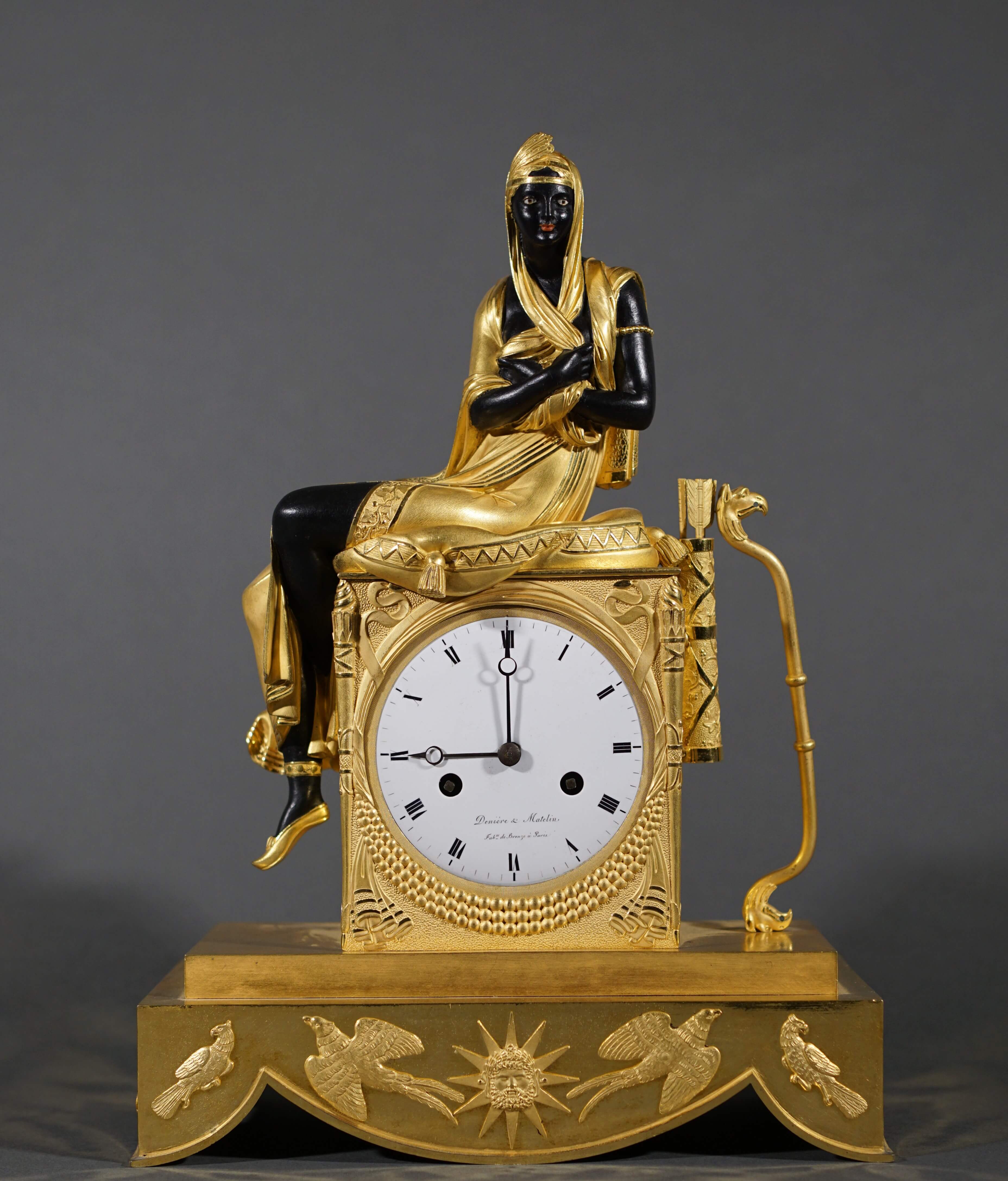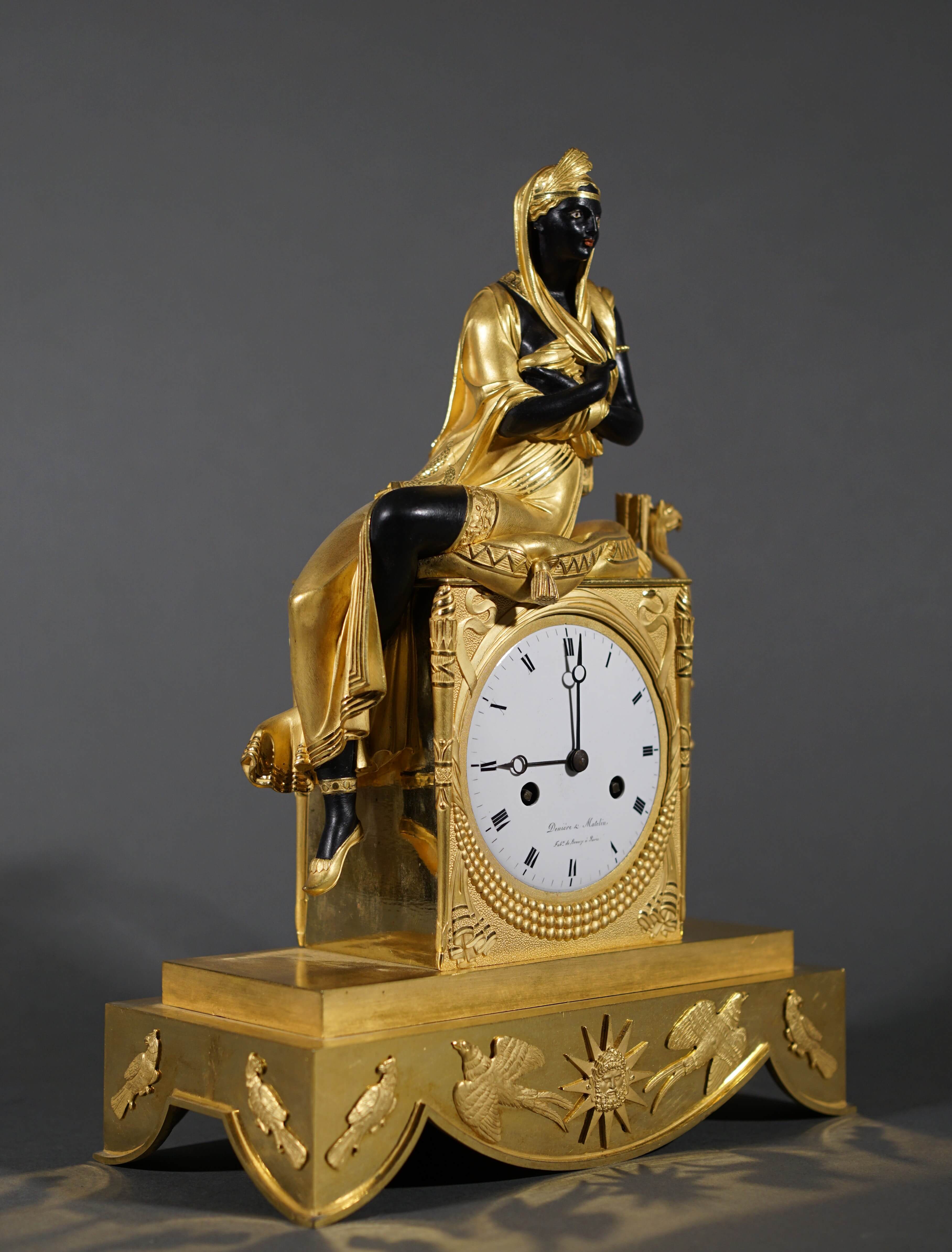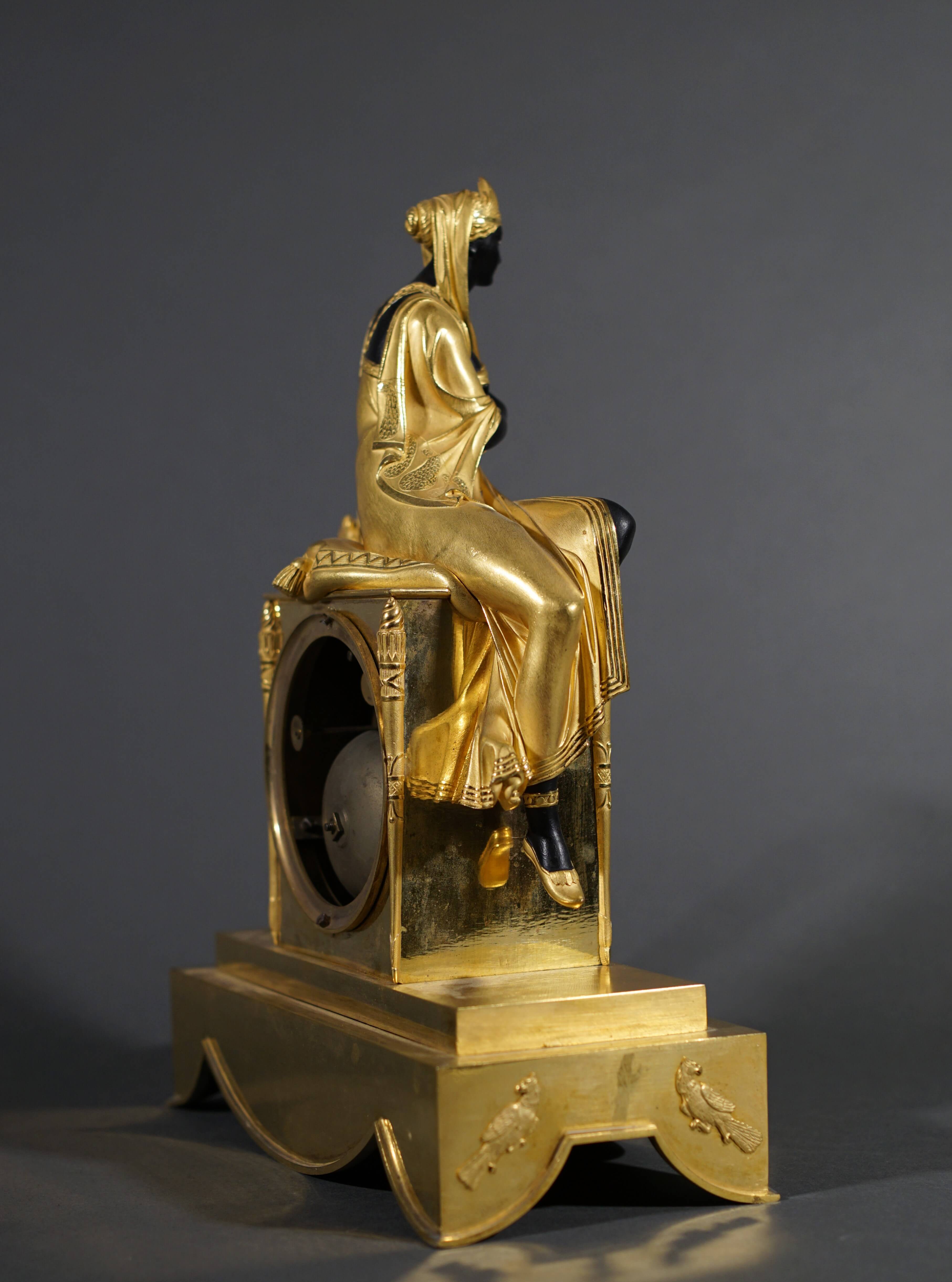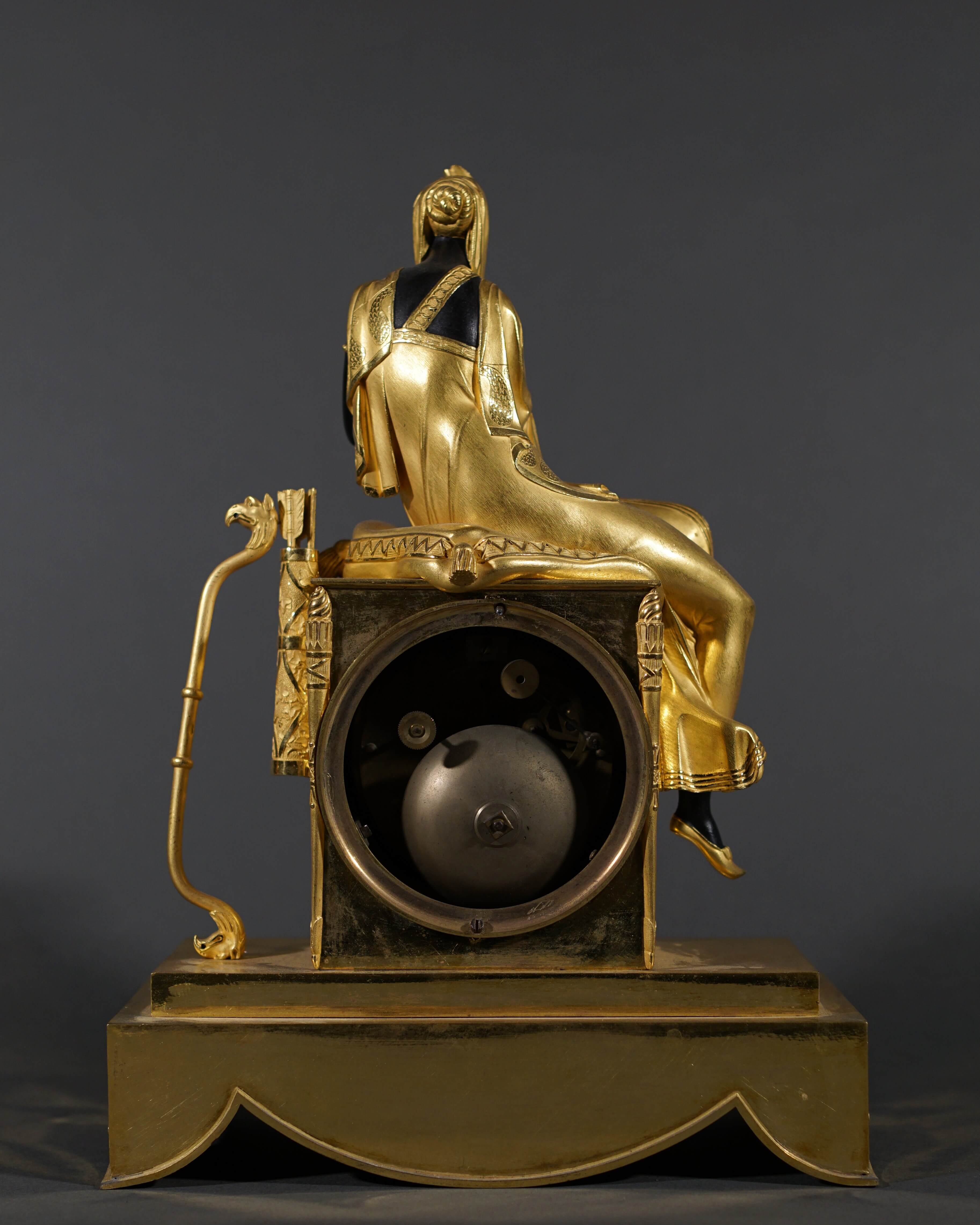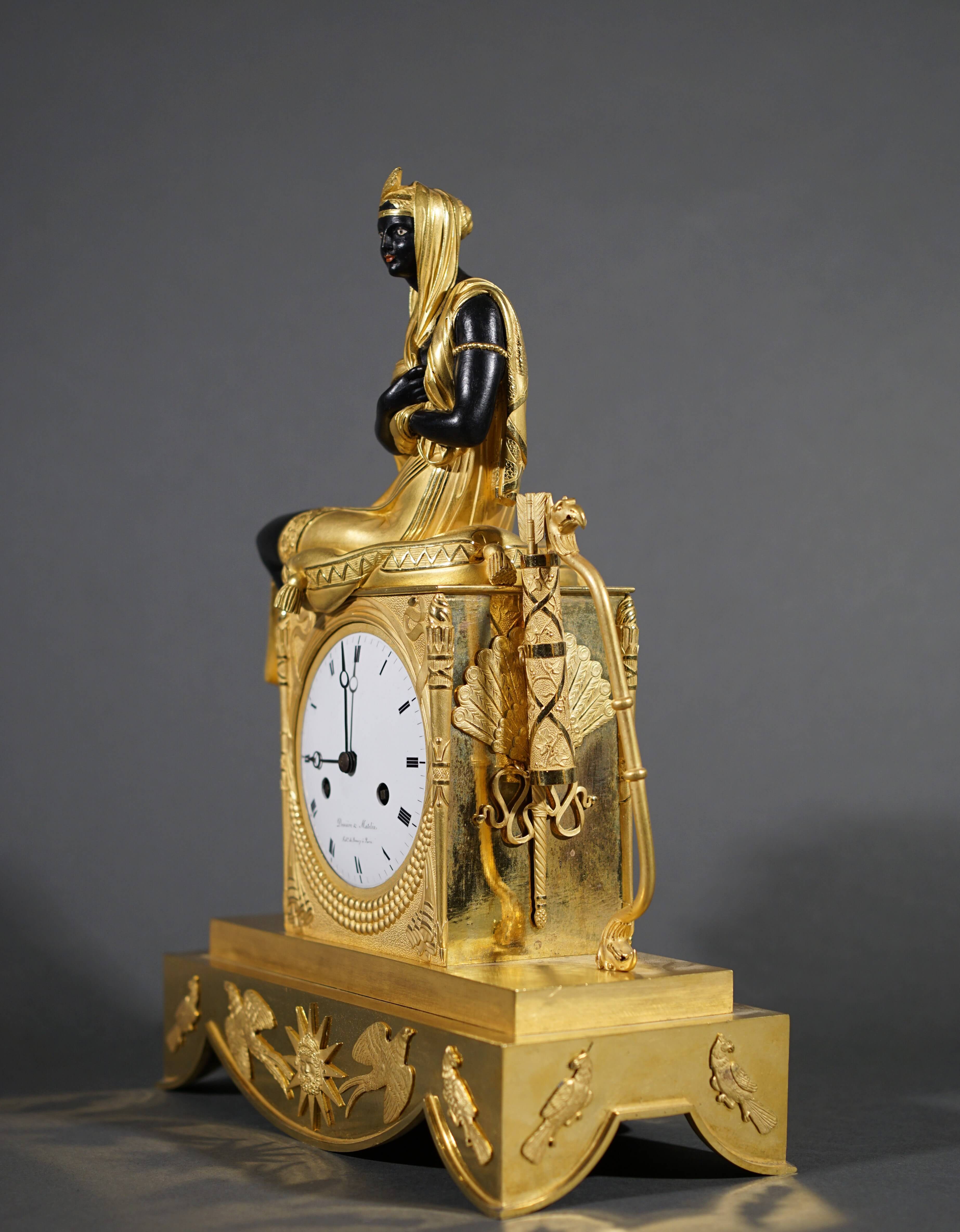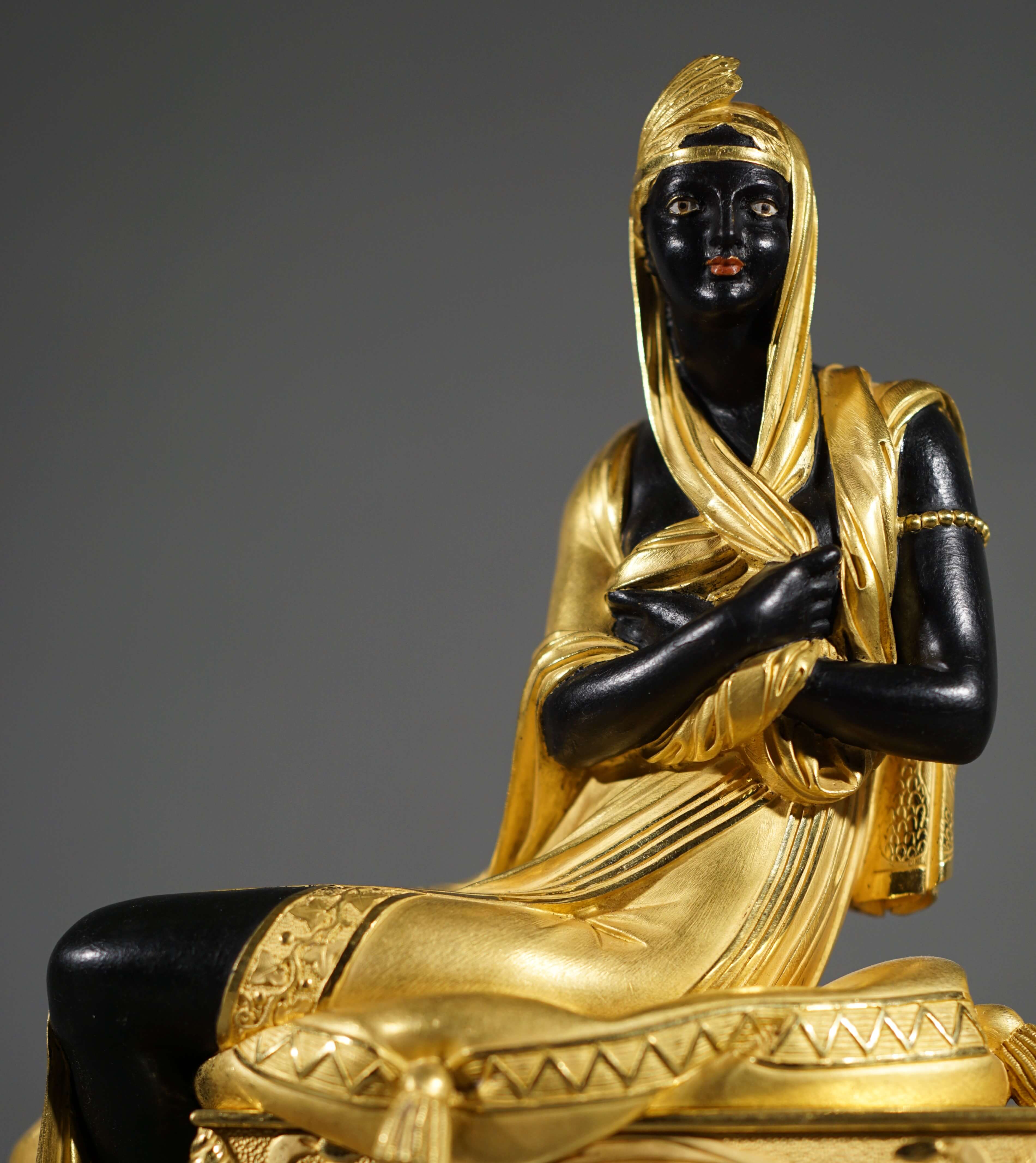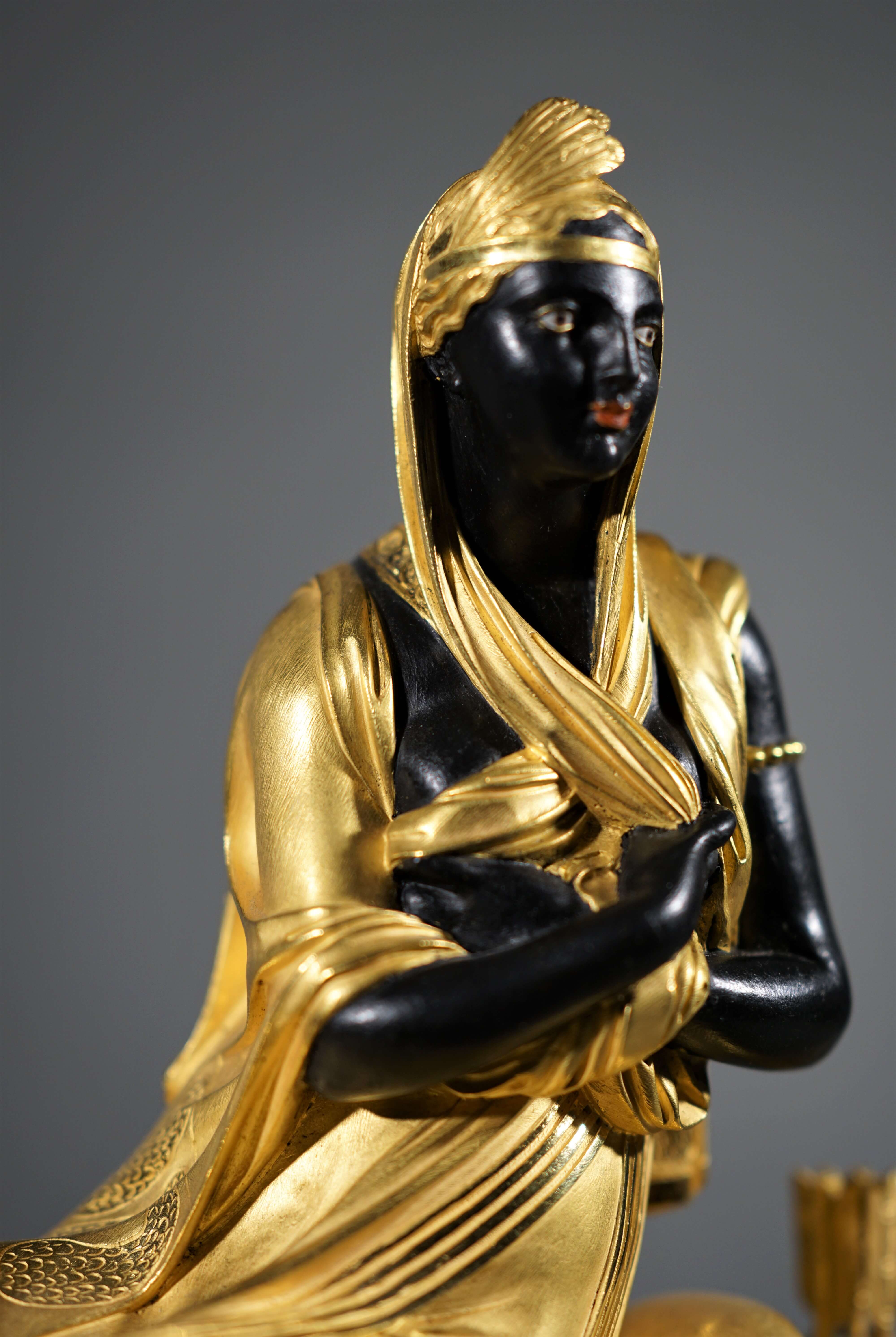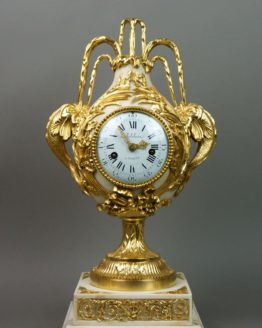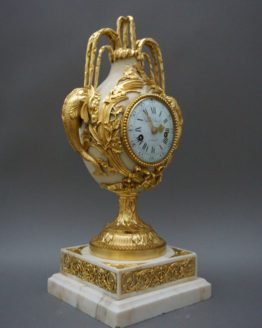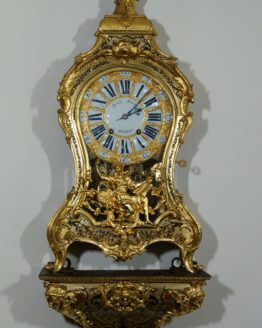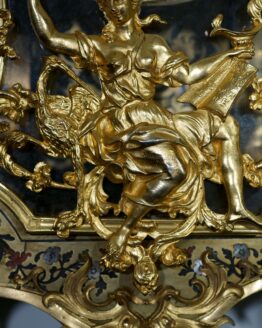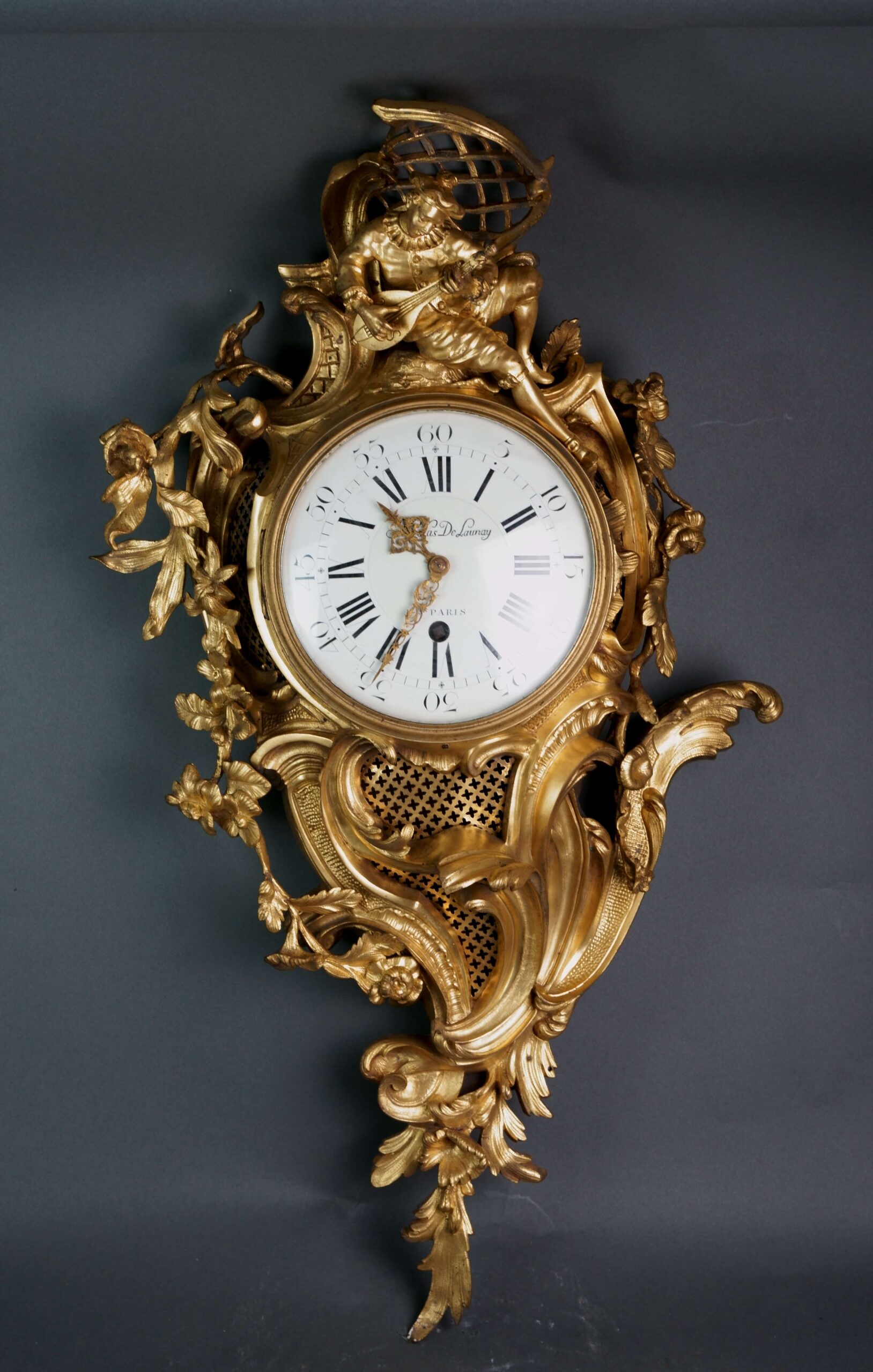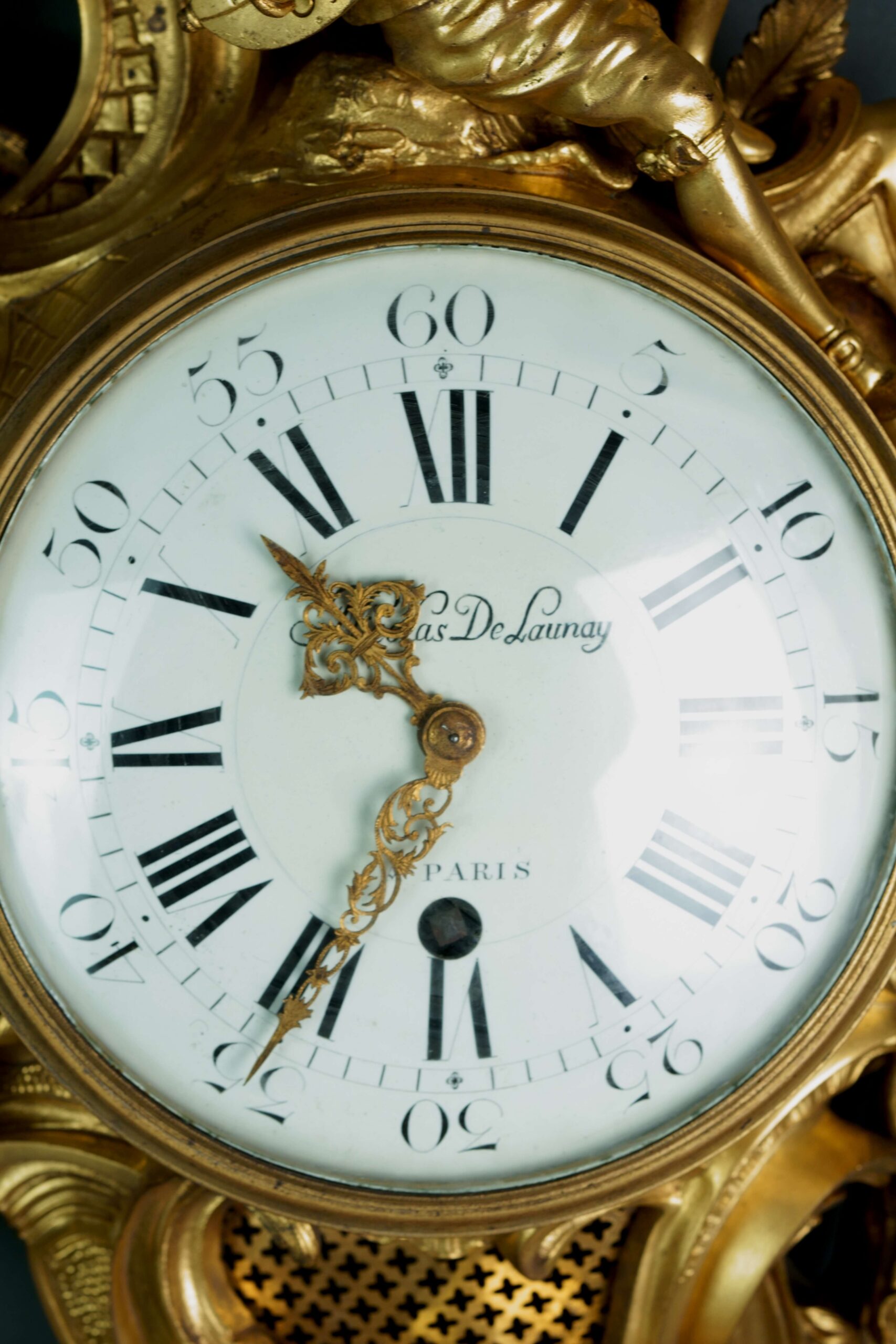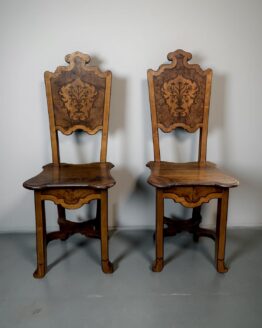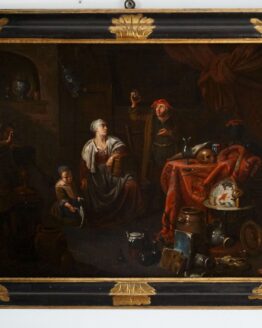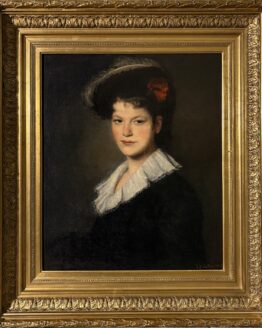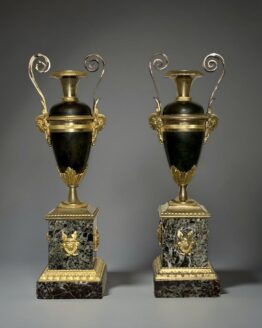A very beautiful Empire clock in gilded and patinated bronze Au Nègre de Denière et Matelin bronze manufacturers in Paris. Around 1805.
The clock represents a young Nubian slave, recognizable not only by her somatic features, but also by the bracelet and the feathered turban; seated on a cushion, dressed in an embroidered tunic, she hugs her arms against her chest in a gesture of modesty. The color of the skin is given by a black patina while the eyes and mouth are painted. By its side there is a bow and a quiver while eagles are depicted on the base. The theme of the Nubian slave was made famous by the founder of negro pendulums: the turbaned Nubian bust pendulum which was delivered in 1784 to Marie-Antoinette.
Nourished by travelogues, the Europe of the Enlightenment dreams of exoticism: Bernard of Saint-Pierre, Chateaubriand and, before them, Daniel Defoe … literature is teeming with romantic tales which, in this liberated 18th century, exalted the image of the good savage and the lost paradise. The negro clocks produced at the end of the century are the quintessence of this pre-Romantic movement. These luxury items are intended for an educated clientele, who know everything about the adventures of our heroes. A clientele who are already escaping, in their living room, thanks to the panoramic wallpapers recounting the crazy adventures of Captain Cook! The literary success of the good savage responds to that of his dark decorative interpretations. And the craftsmen take aesthetic advantage of the contrast of the patinas, dark for the skin of the natives and gold for the accessories. In fact, it is often an idealized image of the Negro, seen through the prism of literature and exoticism. Or the negro living in a paradise not yet perverted by the white conqueror, a Rousseauist image if there is one. This postulate established, we will distinguish the subjects inspired by fashionable novels, from Robinson Crusoe to Paul et Virginie. Literature has indeed given the genre some of its finest subjects. Each theme is the object of delicious arrangements, the unusual versions of which are obviously sought after by collectors.
The Denière et Matelin association is a commercial company created in the last years of the 18th century by the bronziers François-Thomas Matelin and Jean-François Denière and which met with immense success with great collectors and amateurs of time. In the space of a few years, it became one of the most important suppliers of furnishing bronzes in Europe, becoming in particular one of the official suppliers of the Royal Furniture in Milan. At the same time, Denière and Matelin made up a rich private clientele and especially participated in the decoration of most of the imperial palaces and castles by delivering furnishing bronzes and clocks. The association “Denière et Matelin Manufacturers of bronzes in Paris” will end in 1820, date after which the two men intraprent their careers separately.
The clock has a magnificent original mercury gilding in excellent condition, enamelled dial with Roman numerals signed “Denière et Matelin Fab.ts de bronzes à Paris”, Breguet style hands for the hours and minutes, the movement with suspension at silk thread, ringing on the hours and half-hours.
The clock is delivered in working order, revised by professional watchmaker.
Price on request
Measure
L cm 25
P cm 11
H cm 37


